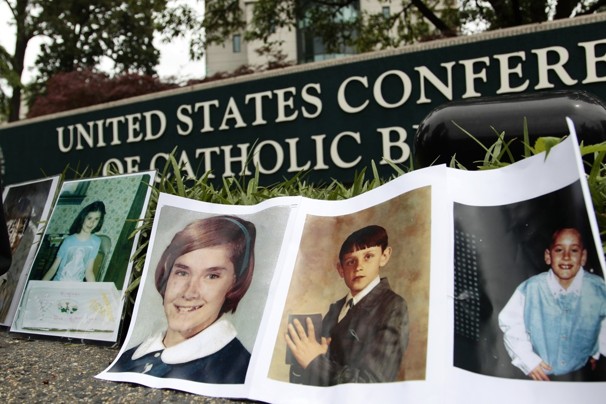Is Cardinal Mahony’s Censure a Sign of a New Catholic Church?
By Mathew N. Schmalz
With retired Los Angeles Cardinal Roger Mahony now stripped of his public duties for his mishandling of the sexual abuses cases in his archdiocese, there is a temptation to be either celebratory or cynical. It’s either an important step in the purification of Catholicism, or it’s an insufficient punishment for a terrible series of crimes. Does it mark a new beginning for American Catholicism or has nothing really changed? It all depends upon whether the lesson learned is about punishment or transparency. When Archbishop Jose Gomez removed his predecessor from acting publicly as a bishop, it was obviously just. Given the extensive evidence that he hid abusers from justice himself, it would be scandalous for Cardinal Mahony to be allowed to participate in the sacraments of confirmation or ordination, which are to be performed by bishops. While Cardinal Mahony has spoken about his “index cards” with names of victims for whom he prays, many felt that his repentance and acknowledgment of responsibility did not run deep enough. If one wants evidence for a purification of the church--as Benedict XVI has called for--one might very well point to this as an important beginning. Cynics too have a case to make since it is clear that disciplining Cardinal Mahony was something far more acceptable to church authorities than holding Cardinal Bernard Law accountable for a similar kind of cover-up. The public relations landscape has obviously changed. But even before the details of abuse in Los Angeles became widely known, Cardinal Mahony was often derisively called an “ultra-liberal” by those on the Catholic right who were against his advocacy for immigrants and his assertion of other aspects of Catholic social teaching. Now that fuller evidence has emerged about how Cardinal Mahony orchestrated the transfers of abuser-priests, even those who admired aspects of his work in Los Angeles could no longer support him. Mahony was quite simply a cardinal without a constituency. Focusing on what and how much punishment to mete out to Cardinal Mahony might be satisfying on a number of levels, but it’s easy to overstate its significance. Since the church is composed of inevitably flawed human beings, it can never be purified in an absolute sense. In fact, it was the desire to maintain the image of the church as some sort of spotless institution that motivated many cover-ups. Emphasizing purification, and connecting it with punishment, has all sorts of repercussions that extend beyond the specifics of the scandal of sexual abuse to how Catholic Christians understand their obligations to each other and to themselves. For me, the most significant aspect of the church’s response is not the disciplining of Cardinal Mahony, but the release of internal church documents. The Archdiocese of Los Angeles did fight to prevent the files from becoming public. But with the court order, Archbishop Gomez did move rapidly. If the release of the documents was done solely out of legal necessity, then it is difficult to see how matters will fundamentally change. To be sure, we might see further removals of bishops, but that would be largely symbolic and cosmetic. If, however, there is a new willingness on the part of the church to be fully open not just about its inner workings but about its faults-then it would definitely mark the beginning of a new and different era in American Catholicism. Transparency is not just important for preventing further abuse, or for addressing matters of liability and legal responsibility. It’s also an important spiritual act that acknowledges our own humanness and our own accountability to one another.
|
.
Any original material on these pages is copyright © BishopAccountability.org 2004. Reproduce freely with attribution.
